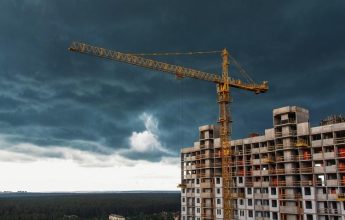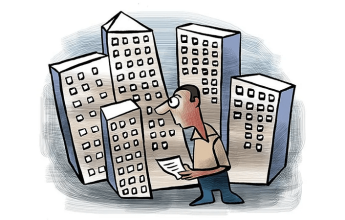Mumbai, Hong Kong to face severe shortage of sustainable office buildings: Report

Mumbai, Hong Kong, to face severe shortage of sustainable office buildings: Report
A JLL analysis indicates that in order to fulfill the severe shortage for sustainable workplaces and comply with future laws, the Asia-Pacific area has to retrofit at a faster rate.

According to JLL, retrofitting potential in Asia Pacific is significant, given that the area has over half a billion square feet of Grade A office building that was constructed before to 2011.
According to a JLL analysis published on October 31, Mumbai and Hong Kong, which are already at the bottom of the Sustainable Offices City Index, are predicted to see a supply gap of top-quality sustainable workplaces of 62% and 68%, respectively.
According to JLL, Singapore, Melbourne, and Delhi are likewise anticipated to be 56%, 43%, and 44% undersupplied, respectively.
An insufficient supply of sustainable workplaces will be faced by major cities in Asia Pacific as businesses strive to meet the net-zero carbon (NZC) targets, according to an index that assessed 20 cities in Asia Pacific (APAC) on four themes: green stock, physical risk to buildings, city competitiveness, and proactiveness of city administrations with regard to NZC targets.
The report highlighted that in order to reach the NZC targets, occupiers will consider sustainability measures at the building level, such as energy efficiency and green energy procurement, rather than just green certificates.
According to Kamya Miglani, Head of ESG Research, Asia Pacific, JLL, “Leasing office space in green-certified office buildings is becoming non-negotiable for occupiers, but currently there is very little correlation between these certifications and a building’s energy performance.” “The current regulations are not strict enough to demand NZC-ready assets, so even buildings with platinum-grade green certifications may not be NZC-ready.”
Governments have already been instrumental in closing the supply-demand gap for NZC-ready office space in certain cities.
“In June this year, Australia formally incorporated an energy performance measure in its National Australian Built Environment Ratings System (NABERS) to reward electrification of buildings and the procurement of renewable energy for building operations,” the research stated.
Similar to this, the Singaporean government said that, contingent on the degree of energy standards met, it offered building owners subsidies last year to reduce the upfront capital expenditures for energy efficiency retrofits.
Also Read: Mumbai real estate: Amid festive season, property registrations in October surge 21% to 10,244






